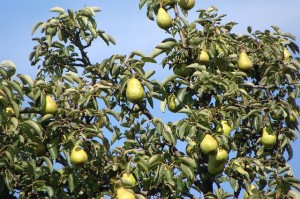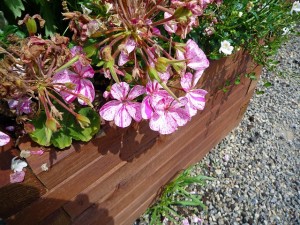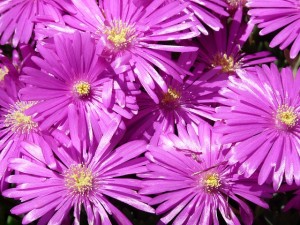Posted on February 26, 2015 at 7:53 am
Slugs and snails are very common in UK gardens, and can be highly destructive! Here are some ideas for pest-proofing your garden the natural way.
One easy and natural slug and snail deterrent is to spread some agricultural grade diatomaceous earth around near your treasured plants. The tiny sharp granules cut the bodies of slugs and snails and cause them to dehydrate. You will need to reapply after each rainfall though.
Another tip is to attach 2 inch wide copper strips around your plants and flower beds – once you have removed all slugs and snails, they won’t cross the copper and therefore won’t be able to get to your plants!
If you have some particularly troublesome spots in the garden, try setting up yeast traps by sinking a shallow jar into the ground, filled with beer. The pesky slugs and snails will fall into the traps ready for you to remove!
Posted in Gardening
Posted on January 13, 2015 at 7:07 pm
If you are considering purchasing a tree to plant into your garden, there are several aspects to think about before going ahead and buying one.
Firstly, spend time finding out exactly what soil type you have in your garden – assess the site for shade or sun, as these will both prove to be very useful when choosing a tree. Certain trees will thrive in different types of soil.
Always buy the highest quality of plant you can afford – there is a lot to be said for buying smaller saplings rather than larger, more mature trees that have been grown in pots. Those little saplings will generally survive and establish much more easily in your garden than a tree that is already somewhat developed.
Begin by stripping the area you wish to plant by approximately 1m in diameter. Next, dig a pit which is at least 6 inches wider and deeper than the root system of the tree. If you have a heavy clay soil, you could mix in some organic compounds or compost while planting in.
Posted in Gardening
Posted on August 26, 2014 at 11:38 am
A lot of people like using their garden solely for decorative purposes, but others, while they feel this is important, also feel that having fruit growing in their garden is essential for the complete garden experience.
Adding fruiting plants to your garden can be done quite simply, but you should try to get a wide selection of different plants for the garden. Getting a few different fruit trees will give you lots of options, but you need to minimise them to ones which grow well in our climate. You can scatter other smaller fruiting plants, such as strawberries, blueberries, and maybe something like garlic or thyme, around the trees, making sure you’re maximising your space usage.

You could design your garden so that it provides a large amount of food produce, through fruit trees, plants, and vegetables, without compromising the garden’s aesthetic design.
Posted in Gardening
Posted on July 25, 2014 at 1:25 pm
Start by protecting the box itself, if you are worried about rodents and other pests getting into your plants, start by applying chicken wire to the underside and even around the sides.
You’ll then need to make sure the soil is right, really you should use bout 1/4 of the soil from your garden and the other ¾ an equal mix of sand and compost to make sure you have nutrient loaded but quick-draining soil. If you can, check the pH level to make sure it isn’t too alkaline or acidic before planting anything. If you’re unsure about compost visit our previous note: Different types of Compost.
Once you’ve got the soil right you can start planting your plants, whether you are growing fruit or vegetable or just sticking to plants, the choice is yours.
Another benefit of these planters is that if the plants in the box become diseased, you can simply empty it out, change the soil and start fresh. Unlike in-ground gardening.

Posted in Gardening
Posted on July 18, 2014 at 1:25 pm
Garden planter boxes are great for the garden for many reasons:
- They are a neat and tidy way to arrange your garden
- If you have poor soil for the plants you want to grow, whether the clay level is too high, or there is too much sand or stones.
- You can arrange plants into different boxes and control their growth more easily.
- Being raised off the ground can help disabled gardeners, or just people who struggle with low positions.
- You can choose many different types to give your garden a different style.
- They come in mobile and immobile. Mobile boxes will give you flexibility to give your plants as much sun as they need! You can also bring them inside should you have a particular harsh winter.
- You’ll also be able to protect your plants from pests like rodents by putting protective wire underneath, up the sides or even over the top of your boxes.

Posted in Gardening
« Previous Page — Next Page »


